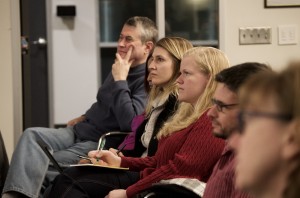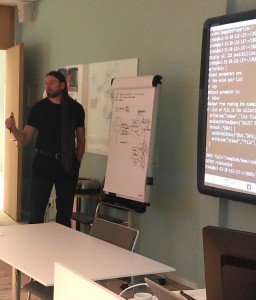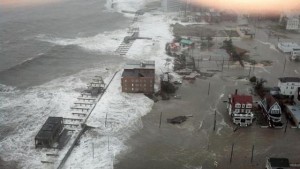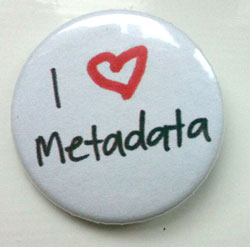Research Triangle Analysts met at RENCI for their first monthly meeting of the new year on January 19. Research Triangle Analysts meet at RENCI every third month and elsewhere around the Triangle during other months. The group, a 501(c)(3) non-profit and all-volunteer organization, promotes the advancement of data science throughout the Triangle’s collaborative communities of analysts, mathematicians, statisticians, and scientists.
Hamza Ghadyali, a PhD candidate in mathematics at Duke University, featured as the speaker for the meeting. Ghadyali develops new topological data analysts (TDA) tools, particularly for the analysis of electroencephalogram (EEG) data. Topology is the mathematical study of shape. TDA tools analyze large, noisy, complex datasets from disciplines such as, but not limited to, oncology, astronomy, meteorology, and neuroscience. Analysis of the shapes and changes in shape represented by data yield information about the data. Read more…






 Metadata—or data about data—and its importance in life sciences research will be the discussion topic at an upcoming webinar featuring RENCI’s Dan Bedard, Interim Executive Director of the
Metadata—or data about data—and its importance in life sciences research will be the discussion topic at an upcoming webinar featuring RENCI’s Dan Bedard, Interim Executive Director of the 